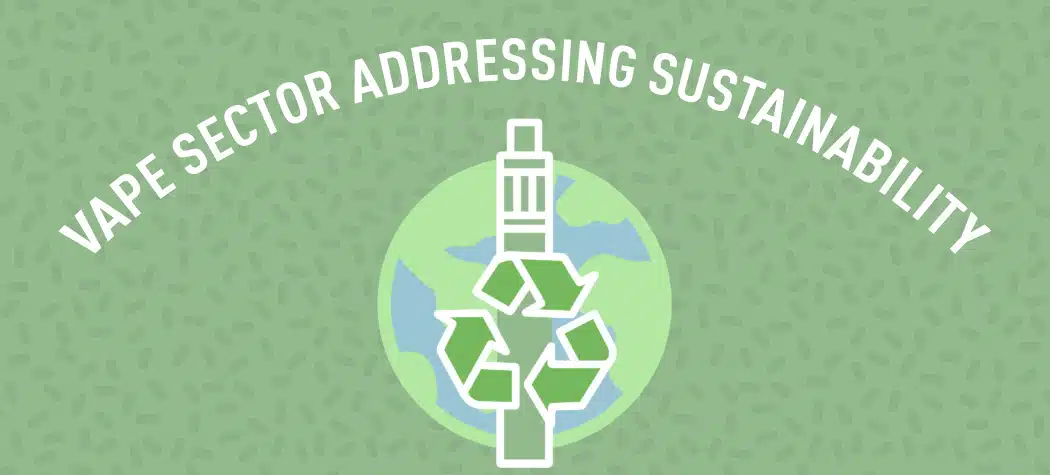Industry Research, Vaping News
Vape Sector Addressing Sustainability
The vape sector is building momentum as more companies are announcing plans to adopt more sustainable policies for their products and improving their approach to the environment. While disposables have experienced a boom in the UK e-cigarette and e-liquid sector through the convenience of use and technological advances, concerns have been rising over the waste problem they cause.
The UK Vape Market Value
The UK e-cigarette and e-liquid sector has grown by over 23% in the five-year period to 2021. This works out as a rise in sales worth a cool £251 million and means the value of vaping to the UK economy now runs to in excess of £1.325 billion.
Discussions about sustainability and the environment
At this month’s UKVIA Forum, presenters’ and attendees’ conversations included the thorny issue of the disposal of disposable e-cigs. Conversations that have been mirrored in the nearby House of Commons and the House of Lords.
Recently, David Jones MP asked the Secretary of State for the Department for Environment, Food and Rural Affairs about people putting disposable e-cigs into their regular bins or littering town and city centre streets. To date, the Government has preferred to leave the policing of the vape industry’s approach to sustainability and the environment up to businesses. It repeated that this stance isn’t going to change – but fortunately, the industry is.
The need for an industry response
Disposable vapes are classified as Waste Electrical and Electronic Equipment (WEEE) for recycling purposes but, due to how new they are, many companies have not registered their products for this compliance year. Ministers have said that they will be pushing for all disposable manufacturers and distributors to register for the next compliance year.
This means a change of approach needs to be made now to ready companies for when legislation will compel them to.
The size of the disposable e-cig waste problem
In region of 10 tonnes of lithium metal is lost in Europe each year from non-recycled disposable vapes. Leading waste specialists say that this is a sufficient quantity of the rare resource to power over 1,200 electric cars.
Not only is this metal currently being wasted but there is also the problematic issue of non-biodegradable single-use plastics finding their way into landfill sites.
What is being done to combat this?
Smoore has recently announced that it plans to release a range of disposable that is ditching the single-use plastic case and the packaging. Its environmentally friendly FUTURE product will be manufactured using bio-based materials. This means it can break down naturally in the soil. The company says the shift in production materials and manufacturing methods will cut plastic use by 60% and carbon emissions by up to 58%.
But won’t the lithium still be lost?
Smoore’s solution is that the cardboard-like packaging is easy to separate and so the internals can be placed into the recycling system.
Is Smoore the only one?

No. The UK’s Riot Labs already have a green disposable product, designed with sustainability in mind and utilising recycled products in the manufacturing process.
Vaporesso is running a marketing campaign over Christmas to motivate vapers to post pictures online of them recycling their devices in store-based Vaporesso Care recycling boxes. There are prizes available to win.
The one thing we can be certain of is that many other brands will adopt sustainable approaches during 2023.
